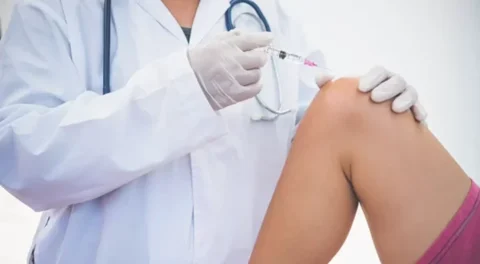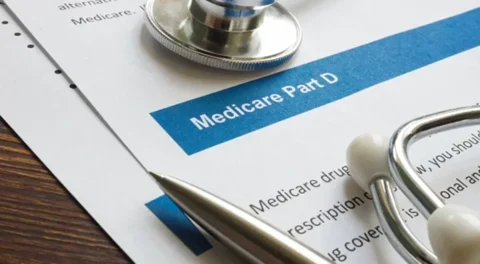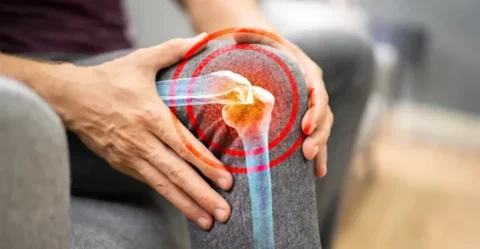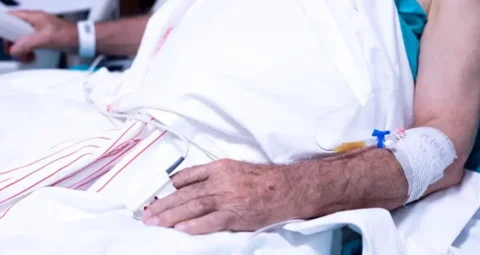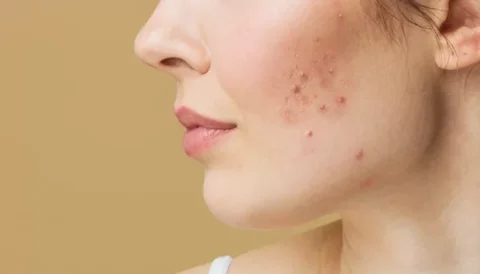Platelet-rich plasma or PRP therapy has been gaining popularity for its benefits in treating hair loss for the past few years. While it’s known to be an effective treatment, many of the case studies have been conducted on a limited group with androgenetic alopecia and other types of hair loss. This leaves many wondering if the treatment will actually work for them as well.
So will PRP therapy work for African American women experiencing different forms of hair loss? The short answer is yes, because PRP injections are an effective option for hair loss on almost all hair types. People looking to address their hair growth concerns, including African American women, can certainly benefit from PRP hair treatments.
Effectiveness of PRP Hair Treatments on African American Women
While PRP treatments may have varying effects on different people, the injections will be able to promote hair regrowth on almost anybody. PPR treatments for any type of hair loss begin with a blood draw from each individual patient.
Once the blood is drawn, that person’s platelet-rich plasma will be separated from all the other components of their blood. This will then be used as the primary solution that is injected as a treatment or cure for hair loss.
After around 2 to 3 injections and a couple of treatment sessions, everyone including African American women should experience an improvement in their hair condition.
With the PRP solution derived from the patient’s own body, it’s unlikely for anyone including African American women to reject the benefits of the treatment for hair loss. At most, the concentrations of growth factors found in each person’s blood may differ and minimally affect the results or longevity of the treatment.
However, it’s highly likely that you’ll notice improvements in hair density and hair growth after PRP therapy regardless of your race or gender.
Is PRP Therapy The Best Option For You?
PRP therapy is a safe and effective treatment for almost anyone experiencing hair loss regardless of race and gender. However, if you’re worried about PRP or any other hair loss treatments affecting you negatively, it would be best to consult your doctor before pushing through with the procedure.
Before administering PRP injections to your scalp, your doctor should sit down with you in a consultation to discuss the entire treatment and its possible side effects.
If you’re concerned about anything, in particular, this would be the time to disclose your apprehensions or medical history that may affect the treatment. While being an African American woman will most likely not cause any issue during the procedure, your medical history and pre-existing conditions might.
Overall, PRP therapy is one of the best treatments for hair loss as it rarely causes adverse reactions and can be conducted on multiple types of people.
Things That Could Be Causing Hair Loss in African American Women

When it comes to hair loss conditions, there are several factors that come into play. From genetics to hormonal imbalances, hair loss can affect anyone. While there are multiple things that could be causing your hair loss, here are some of the most common reasons:
1) Stress-Related Hair Loss
While this isn’t a hair loss trigger specific to African American Women, stress-induced hair loss can be the reason for their balding and hair thinning. With the chemical reactions that stress can cause within the human body, it’s possible that stress can affect your hair follicles’ ability to produce hair.
This is called telogen effluvium which can push the hair follicle out of the active anagen phase of hair and can cause it to gradually fall off. Though your hair will grow back most of the time once you are no longer stressed, it’s possible that you’ll need treatment to boost your body’s natural hair cycle.
2) Genetics
According to Dr. Lenzy, African American women are genetically more susceptible to hair loss as opposed to other women. This is due to the fact that they’re likely to develop central centrifugal cicatricial alopecia (CCCA) which causes inflammation and permanent damage to their hair follicles.
Due to the inflammation and damage, it’s likely that they’ll experience some scaling which will result in permanent hair loss. While there’s little to be done in alleviating the disorder completely, there are several treatments on the market that can help ease its symptoms.
3) Traction Alopecia
While genetics do play a part in the hair loss conditions of African American women, there are some habits integrated into their culture that can also be the cause of their hair loss. Due to different styling and treatments that involve heat, harsh chemicals, and tight hairstyles, African American women often place their hair under immense stress from the root.
This could lead to brittle hairs or hair shedding and over time cause balding in certain spots. This occurrence is called traction alopecia and can be prevented by adopting more gentle treatments and hairstyles in general. However, treatments like PRP injections may be needed to boost hair growth if the condition is too severe.
Benefits of PRP Therapy for African American Women
PRP therapy can cater to almost all hair types, and African American women are no exception. They can certainly benefit from PRP therapy because it’s a non-surgical hair replacement treatment, it improves hair thickness, and it provides long-term results.
1) Non-Surgical Hair Replacement Treatment
While there are multiple other treatments to treat hair loss, PRP offers African American women and other PRP patients a non-surgical option for hair loss and androgenic alopecia. With the entire procedure executed with a small syringe to the scalp, PRP patients don’t need to go under the knife or general anesthesia to reap its benefits to the hair follicle and growth of hair.
Additionally, with PRP being an outpatient procedure, there’s often minimal downtime that goes with it. At most, you may feel some soreness or discomfort on the injection site but it should subside in a couple of days.
2) Improved Hair Thickness
Female hair loss, whether it is genetic or not, is often associated with hair fall. However, it can also affect hair thickness and the density of pre-existing hairs. With African American hair in particular, density and fullness of hair can affect the overall look of one’s hair significantly, meaning that thinning hair could also be an issue.
PRP injections not only promote the hair regrowth process but can also increase the size of the hair shaft and hair follicle for existing hairs. This will give any type of hair in general thicker and healthier looking hair.
3) Long Term Results
While PRP isn’t a permanent solution for anyone, it can provide you with healthy hair growth for a significant amount of time. On average, PRP as a non-surgical hair restoration treatment can keep the hair follicle in the active hair growth phase for around 18 months to 2 years. During this time, you should see the hair shaft growing much longer and thicker than before.
Once you begin seeing a decline in your hair growth or the quality of your hair, you can book additional treatments to help maintain the results. Overall, PRP injections provide a viable solution for hair loss in women who are African Americans or of any other descent.
Alternative Treatments to PRP Therapy For African American Women

Though PRP injections are effective in treating hair loss in African American women, they may not be for everyone. If you would rather avoid follow-up treatments altogether, hair transplants may be a better option for you.
Used to treat several types of pattern baldness and female hair loss, hair transplants are known to be effective in promoting hair growth in African American women and other hair loss patients. You will have to undergo a surgical procedure but the results may be worth it.
Another option is to also choose gentler hair products, treatments, and styles as an African American woman. Having tight twists, braids, or locks can put extra pressure on your roots and cause premature balding. Straightening and perms may also damage your hair severely causing it to fall out.
While it may take some time for hair to regrow without assistance from any treatment, avoiding harsh products and hairstyles will eventually help you see some hair regrowth.
Purchase PEP Factor For Scalp Rejuvenation at FACE Med Store Today
PRP injections is a viable treatment for everyone including African American women suffering from female pattern hair loss and balding. As an outpatient procedure, PRP injections can help you achieve hair regrowth without the hassle of undergoing surgery.
Alternatively, you can also try topical treatments like PEP Factor to boost hair regrowth as either your main hair treatment or as a supplement to PRP. PEP Factor is made of bFGF and copper peptides that are used in conjunction with Ultra-ReGen LED sure to help you get visibly better-looking hair within 2 to 4 weeks. Contact FACE Med Store to see our updated stock list and purchase your PEP Factor treatments today.

